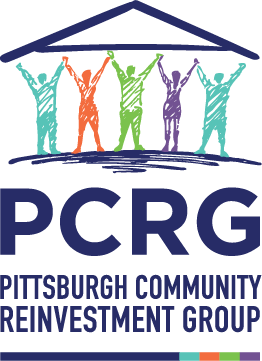Reimagining Communities Initiative (RCI)
MISSION:To leverage PCRG’s longstanding leadership role in advocating for equitable public policy, community access to resources, and strategic organizational partnerships for the purpose of building community development capacity, both locally and system-wide, that is driven by meaningful community inclusion.
In response to feedback from its membership and partners, PCRG recognized that many communities lacked the organizational capacity to benefit from the various programs and resources that it has advocated for and helped to create over the years, preventing them from fully participating in the Pittsburgh region’s community development system.The Reimagining Communities Initiative (RCI) was established in 2011 with the goal of building capacity within distressed neighborhoods. Reimagining Communities employs a catalytic and holistic community development strategy that ensures the success and long-term sustainability of neighborhood stabilization. In addition to driving residential investment and vacant property mitigation, significant emphasis is placed on personal wealth attainment through the direct provision of financial literacy, homeownership, and foreclosure counseling. Connecting these programmatic facets is a commitment to consistent and deliberate resident engagement and inclusion, empowering residents and community-based organizations to become active stakeholders in their neighborhood’s future and economic health.The success of the Reimagining Communities Initiative hinges on the development of strategic partnerships and broad-based coalitions. Over the past 26 years, PCRG has demonstrated its ability to facilitate and maintain positive working relationships with residents, community organizations, businesses, financial institutions, and government. When coupled with an unrelenting commitment to eliminate disparities, Reimagining Communities serves as a powerful model for thoughtful and deliberate collaboration in our region’s communities.
GOALS:
Increase Local Organizational Capacity
Support a Robust and Active Network of Community Leaders
Facilitate Community Visioning
Improve the Condition of Neighborhood Housing
Provide Opportunities for Achieving Household Economic Stability
Position Local Organization to be Competitive in Securing Long-term Investment
